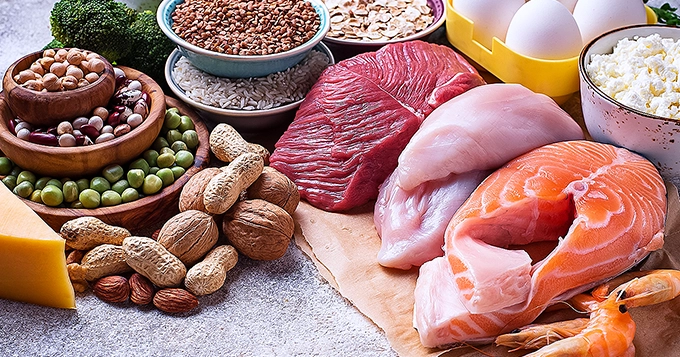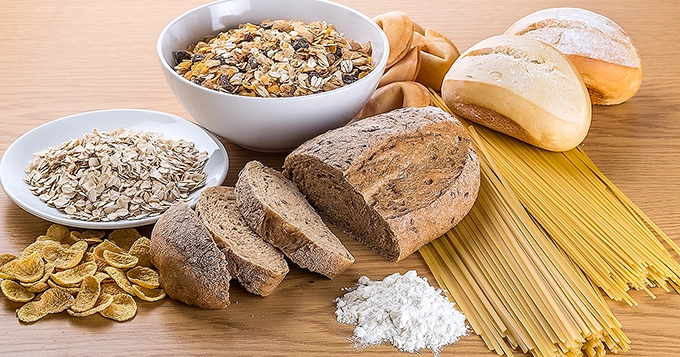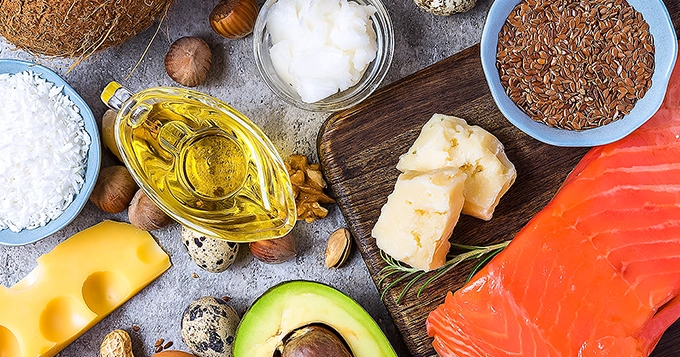Macronutrients are the cornerstone of our diet, providing the body with essential energy and building blocks for overall health and well-being.
Your body needs macronutrients in large quantities. These include carbohydrates, protein, and fats. Let’s gain a better understanding of their roles and importance in our daily nutrition.
Macro vs Micro
Macronutrients and micronutrients are two categories of nutrients that our bodies require for various essential functions. Here’s a brief comparison of macro and micro:
Macronutrients:
- Macronutrients are nutrients the body needs in large quantities, typically measured in grams or calories.
- The three primary macros are carbs, proteins, and fats.
- Carbohydrates provide energy and are a primary fuel source for the body.
- Proteins are essential for growth, tissue repair, and various metabolic processes.
- Fats serve as an energy reserve, support cell structure, and aid in absorbing fat-soluble vitamins.
- Macronutrients are considered “bulk nutrients” because they provide the body with significant calories.
Micronutrients:
- Micronutrients are nutrients your body needs in smaller quantities, typically measured in milligrams or micrograms.
- Micronutrients include vitamins and minerals, such as vitamin C, vitamin D, iron, and calcium.
- These nutrients are essential for various biochemical reactions, immune function, and overall health.
- Micronutrients do not provide calories, but they are crucial in supporting the body’s processes.
- A deficiency or excess of specific micronutrients can lead to various health issues.
Types of Macronutrients
-
Protein
Proteins are large and complex molecules that are essential to various bodily functions. They are vital for the structure, operation, and control of the body’s tissues and organs and perform most of the work in cells. This macronutrient also aids in muscle growth.
Proteins are comprised of smaller units called amino acids.
Out of these amino acids, nine are categorized as essential, meaning they need to be obtained through dietary sources. In contrast, five are nonessential, as the human body can produce them on its own. The remaining six amino acids, which are used for building proteins, are conditional, meaning they become essential only in specific life stages or under particular disease conditions.
Histidine, leucine, isoleucine, methionine, lysine, tryptophan, phenylalanine, valine, and threonine are the amino acids that are considered essential.
Alanine, serine aspartic acid, glutamic acid, and asparagine are the amino acids that are not essential.
The amino acids arginine, glutamine, cysteine, glycine, tyrosine, and proline are conditional.
Good sources of protein:
- Egg
- Beans
- Fish
- Greek yogurt
- Lentils
- Tofu
- Poultry
- Lean beef
- Lean pork
-
Carbohydrates
Carbohydrates, or carbs, are sugar molecules. Together with proteins and fats, carbs constitute one of the three primary nutrients in foods and beverages.
Carbohydrates are turned into glucose by your body. Glucose, or blood sugar, is what your body’s cells, tissues, and organs use for energy. Your body can use glucose immediately or save it in the muscles and liver.
There are three types of carbs:
Sugars: These are simple carbohydrates found in candies, desserts, processed foods, and natural sources like fruits, vegetables, and milk.
Starches: Starches are complex carbohydrates, such as bread, cereal, pasta, and certain vegetables, such as potatoes, peas, and corn. The body converts them into sugars for energy.
Fiber: Fiber is another complex carbohydrate the body can’t fully break down. Foods high in fiber, like fruits, veggies, beans, nuts, seeds, and whole grains, help you feel full, support digestive health, and can lower cholesterol and blood sugar levels.
The healthiest sources of carbs are unprocessed or minimally processed whole grains, vegetables, fruits, and beans.
-
Fats
Fats are alternatively known as “fatty acids” or “lipids.” In our bodies, fats consist of three molecules connected, and this structure is referred to as a “triglyceride.”
There are four types of fats.
Monounsaturated fats. Monounsaturated fats can lower your levels of bad cholesterol, which also lowers your risk of heart issues and stroke. They also supply nutrients that support the growth and upkeep of your body’s cells.
Polyunsaturated fats. Dietary fats include polyunsaturated fats as well. It is considered as one of the good fats. Nuts and seeds, vegetable oils, and salmon are foods high in polyunsaturated fat.
Saturated fats. Considered to be one of the unhealthy fats. High-saturated-fat foods include cheese, butter, coconut and palm oils, and red meat.
Trans fats. Trans fats cause your levels of good (HDL) cholesterol to drop and your bad (LDL) cholesterol to rise. Consuming trans fats raises your risk of heart attack and stroke. Additionally, it’s linked to an increased risk of type 2 diabetes.
Conclusion
Understanding the functions of macronutrients like carbohydrates, proteins, and fats helps us make informed and healthy diet choices. This is crucial for maintaining healthy and balanced meals because they supply the body with the energy and nutrients it needs to operate correctly.








